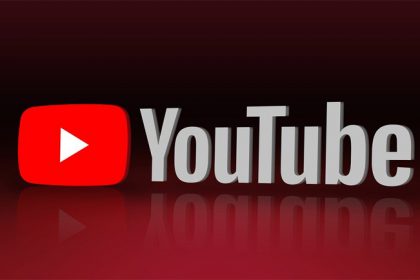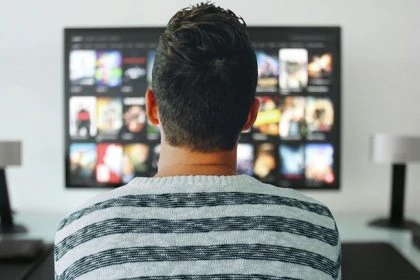The illegal uploading of videos on YouTube – or other infringing content on online platforms – is always a case before the courts. Today, the ECJ ruled on the liability or exemption from liability of Youtube/Google for illegal uploading of protected videos. In short: it depends on…
 The six questions, which the ECJ answered today, were submitted by the German Federal Court of Justice (Bundesgerichtshof, BGH) in a reference for a preliminary ruling. They concern the problem of the liability of the operators of online platforms in the case of copyrighted works that are illegally placed online on these platforms by their users.
The six questions, which the ECJ answered today, were submitted by the German Federal Court of Justice (Bundesgerichtshof, BGH) in a reference for a preliminary ruling. They concern the problem of the liability of the operators of online platforms in the case of copyrighted works that are illegally placed online on these platforms by their users.
Can Youtube/Google be held directly liable for the infringements and illegal content they publish?
Liability of Youtube/Google?
The focus was on the liability of Youtube/Google: is there a primary liability as operator of this video platform? Or is it a secondary liability of these platform operators for copyright infringements by users of their platforms? Or is the platform operator exempt from liability as a provider of an “information society service”?
In the specific case, video recordings from the album and from a concert by Sarah Brightman in relation to her album “A Winter Symphony” were uploaded to Youtube by Youtube users, to which the German plaintiff Mr Petersen holds copyrights and related rights. Although Youtube removed the specific illegal video sequences complained of, it did not prevent its users from uploading further videos relating to her album “A Winter Symphony” to Youtube.
Youtube’s liability – through all German courts of law
The legal dispute has already gone through all the German courts; Youtube is under an obligation to stop the offending publications, and there is also a possible claim for damages. Ultimately, the Federal Court of Justice (BGH) referred a constellation of questions to the European Court of Justice for a preliminary ruling, which requires an interpretation of several EU directives: Directive 2000/31/EC on certain legal aspects of information society services and electronic commerce, Directive 2001/29/EC on the harmonisation of certain aspects of copyright and Directive 2004/48/EC on the enforcement of intellectual property rights.
Last year, Advocate General Saugmandsgaard delivered his opinion on this (16 July 2020, EU:C:2020:586). He recommended that the ECJ rule that operators of platforms such as YouTube do not, in principle, engage in acts of “communication to the public” within the meaning of Article 3 of Directive 2001/29 and are therefore not directly liable for an infringement of that provision if their users unlawfully place protected works online.
No “communication to the public” – no liability of Youtube
Today, the ECJ delivered its judgement on this issue (EU:C:2021:503). Like the GA, the ECJ also sees no “communication to the public” of the content within the meaning of Art. 3 of Directive 2001/29, unless the platform operator contributes, beyond the mere provision of the platform, to providing the public with access to such illegal content in violation of copyright. Specifically, this is the case if the platform operator has concrete knowledge of an infringement and does not immediately delete the illegally uploaded content or block access to it, the ECJ ruled.
Moreover, the European Court of Justice added, this is also the case if the platform operator does not take the appropriate technical measures (with due diligence) to combat copyright infringements on that platform in a credible and effective manner, including not providing tools on the platform specifically designed for the unauthorised sharing of such content. However, platform operators can only fulfil their duty in relation to specific content, the ECJ emphasised. The fact that Youtube performs automated indexing of content uploaded to that platform and recommends videos according to the user’s profile or preferences, and also enables the sharing of content, is not sufficient for the platform to be deemed to have “concrete” knowledge of unlawful activities, according to the court.
Exemption from liability for platform operators – if without knowledge
In principle, the activity of the operator of a video-sharing or share-hosting platform does fall under “information society services” according to Art. 14(1) of Directive 2000/31/EC, insofar an exemption from liability applies to platform operators, the ECJ explained. However, this only applies if the platform operator does not play an active role that gives it knowledge of or control over the content uploaded to its platform. An exemption from liability is expressly excluded if the platform operator has knowledge of the specific illegal acts of its users, such as uploading protected content to its platform, the ECJ ruled.
Liability of Youtube
The ECJ insisted that the notification of protected content that has been unlawfully reproduced in public via a video-sharing or share-hosting platform must contain sufficient information to enable the operator of that platform to verify this, without detailed legal examination, that such reproduction is unlawful and that any deletion of the content in question would be compatible with freedom of expression.
However, can the holder of a copyright or related right obtain a court order under national law only if that infringement was first notified to the intermediary/platform operator prior to the commencement of legal proceedings and if the latter did not act promptly?
The ECJ stated that these questions are not precluded by Article 8(3) of Directive 2001/29. However, it is up to the national courts, the ECJ added, when applying such a condition, to ensure that the actual deletion of the infringement is not delayed to such an extent that the rightholder suffers disproportionate damage.
Finally, the ECJ stated that the BGH, as the referring court, would have to determine, in the context of its examination of Article 3(1) of the Copyright Directive, whether YouTube contributes to making illegal and protected content available to the public in breach of copyright beyond the mere provision of its platform. If this is the case, YouTube/Google cannot invoke immunity from liability under the e-commerce directive.
Would you also like to protect intellectual property or copyright?
Our lawyers have many years of expertise in the entire field of intellectual property and are entitled to represent you before any court – in Germany and also internationally.
Please contact us if you are interested.
Sources:
Judgement of ECJ, Liability of Youtube/Google, EU:C:2021:503
Image:








Leave a Reply